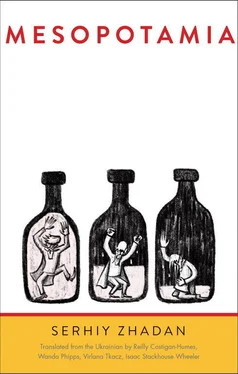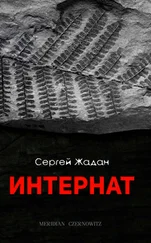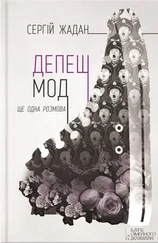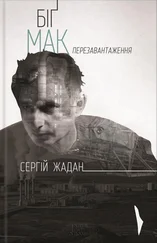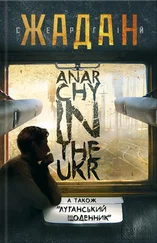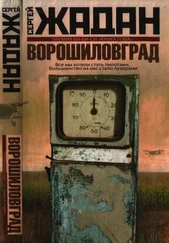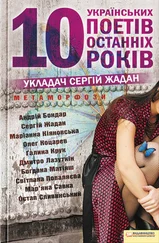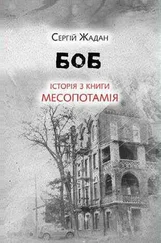“What could he possibly know about business?” Mark griped that evening in Kolia’s bathtub. “He can’t even open a new vegetable stand.”
Nastia sat on the edge of the tub in her gym shorts and a tight-fitting top, holding some dry towels, smiling and listening to her cousin.
“He can do anything he puts his mind to,” she objected. “He just got taken for a ride.”
“He just can’t do anything at all! He can’t even play cards.”
“Everyone knows how to play cards. Even I do.”
“Yeah, sure you do.”
“Wanna play?” Nastia got up, tossed him a towel, and stepped out into the hallway.
Mark wrapped the towel around his body and left the bathroom, leaving wet tracks behind him. Nastia sat down on the rug, deck of cards in hand. “Well, now I know exactly what to do,” Mark thought, remembering how ridiculous Kolia acted whenever he played.
“All right, let’s go,” Nastia said, smiling.
He lost three times. He was furious. Then he lost again, ripped the whole deck up, and went over to the kitchen. Nastia waited for a bit, then followed him out of the room.
“Hey, Mark, don’t be so angry. You never had a chance anyway. I know all the tricks. I trained at the circus.”
“For real?” he asked, turning toward her, thinking that might give him sufficient grounds to accept his defeat.
“Yep,” Nastia assured him. “By the way, I know some other tricks, too. I can read navigational charts, just like Saint Sarah.”
Lying next to her, distinguishing her every movement in the dark, Mark thought about how his mom slept the same way—pieces of clothing scattered around the bed, the alarm clock wound to a cold ring, the whole world forgotten. There she lay, not regretting a thing, not lamenting a thing, leaving all those tormenting nighttime thoughts to restless neurotics like Mark. He sifted through all the words he’d heard over those past three nights with Nastia, all her stories and promises. He made some calculations, tried to develop a plan, found some unexpected arguments in his defense, and searched for some level-headed answers. In the morning, the planets aligned—it’s all up to us; our hearts dictate everything. No despair, no fear, and no excuses.
Through the sleepy reverberations and morning turbulence, he felt that there was suddenly more light, and someone’s breath, muted and hostile, growing and growing until it filled and ruptured the morning void.
“Mark!” He hopped up, flipped over in the air like a cat, landed on his knees, sprang to his feet, slammed into the alarm clock that hadn’t gone off, stepped on a plate of leftover pasta, knocked over some wine, spilling it all over the bedsheets, bumped into Nastia’s suitcase, sending her maxi pads flying, and grabbed a pillow to cover at least some part of his body.
“Mark, you son of a bitch!” Kolia was an ominous figure in the doorway, wearing rumpled white pants and a yellow cycling shirt, his olive black skin pumped full of antibiotics and poisons.
His shout woke Nastia up, and she poked her head out from under the sheets. Recognizing her, Kolia froze, surging forward in rage, leaving his bags of hospital things by the door. Mark’s reflexes were fast enough, but just barely—that bought him a split second, long enough to regroup, turn around, and tear through black hallways and dusty rooms toward the kitchen, with death at his heels. Kolia hopped over the suitcase, slipped on the pasta, banged into the wall, and then went flying in the other direction. Mark was stomping barefoot across the hardwood floor in the kitchen. Kolia got up and ran over to the closet—for his shotgun, what else? Mark ripped off the makeshift velvet curtain and tried opening the window, to no avail. Kolia had fallen behind, but not for long. He was going to catch up and start stomping Mark’s ribs in. Mark retreated slightly, but there were heavy, frantic footsteps behind him. Mark looked back and saw Kolia feverishly stuffing shells into his Izhevsk over-under, intoxicated by the hunt. Mark hopped onto the sill and rammed his knee through the window. The glass shattered like ice in March. He jumped forward, leaving a trail of blood behind him. “He won’t do anything to me,” he assured himself as he ran down the street. “He doesn’t have the guts.”
Mark spent the day at the shop, nursing his knee, lying on the couch, and listening to the voices coming in from the street. He looked at the furniture scattered around, touched the old wood, and took in the smell of aging. “Most of the people who owned these things left a long time ago,” he thought. “Something drove them out of this city, compelled them to leave their homes behind, pass through the fortress walls, get across the river, and dissolve into space. What was it that led them to that decision? Maybe it was all their misfortunes and failures. Maybe it was their need to be understood. Or their inability to endure the city’s climate—clouds and rain blanket the sky half the year and its black flames scorch you for the other half. Some bolted after inner peace. Some wanted to rid themselves of it. The voice of faith beckoned some. Others fled, sensing danger. Why didn’t they stay?” Mark thought. “What were they lacking? Inner peace? Confidence? Love?” Mark imagined how long it had taken them to reach that decision, how many setbacks they’d faced, and how much disillusionment their souls had imbibed. Some of them could only gather the strength slowly, and the process was especially painful for them, while others ventured out swiftly and effortlessly. Some people couldn’t admit to themselves for the longest time that they were indeed ready—ready to give up everything they’d accumulated over the years and willing to move forward, beyond the river, into the darkness, among strangers. They had to make tons of arrangements, set all kinds of things up, find secondhand dealers and movers, say goodbye to their friends and relatives, take only the essentials, and shed everything superfluous. Furniture was superfluous. You don’t set out in search of a better life with your own furniture. You leave it here to molder and die. Maybe I could flee and move forward. Maybe I could just bolt too, start anew, find my place in life, and claim my own territory. I might wind up in the big cities, live among the other refugees, look for my big break, test fate, and bounce around from place to place, forging on toward a blessed land where the sun will never set, where the raindrops will spare my house, and where the earth will be soft and the bread sweet. Of course I could,” Mark thought. “But what about everything I’d have to forgo? What about Mom? What about Kolia? I don’t like the idea of staying behind with them, but I like the idea of taking them along even less. What’s more important?” Mark thought. “Finding a new place for yourself or leaving the old one behind? It’s a good thing we always have a choice, that it’s always up to us.”
Nastia came by in the early evening. She was wearing a long, colorful, ankle-length dress and a see-through shirt. She was trying to act serious, though she couldn’t quite pull it off. She saw Mark’s swollen, bloody knee and got started on treating it. He took it like a man for a while, then he erupted with a scream. Then Nastia lay on top of him, as though taking cover from the evening heat, lying there and comforting Mark, lying there, piecing him back together, not letting him break down into hot chunks of clay. Mark was quieting down gradually and had even started to doze off when she spoke.
“Come with me. Leave everything and come with me.”
“What am I supposed to do when we get there?”
“You could do just about anything. I can teach you to cook, if ya want. I can get you a job at the port, if ya want. I can have your kid.”
Читать дальше
